In today’s fast-paced world, where toddlers can swipe an iPad before they can walk, early childhood education has never been more crucial. Imagine shaping young minds from the comfort of your own home while sipping coffee in your pajamas. Sounds dreamy, right? With online early childhood education degrees, it’s not just a fantasy; it’s a reality!
Online Early Childhood Education Degrees
Online early childhood education degrees provide flexible learning options for aspiring educators. Students engage in coursework that covers child development, educational psychology, and curriculum design. Many programs offer convenient schedules, allowing individuals to balance studies with personal responsibilities.
The demand for qualified early childhood educators is growing. According to the Bureau of Labor Statistics, employment for preschool teachers is expected to increase by 10 percent from 2020 to 2030. This statistic highlights the importance of obtaining an education degree in a thriving job market.
Various institutions offer online degrees, including associate’s, bachelor’s, and master’s programs. Each degree level enhances knowledge about teaching strategies and early childhood education policies. Online courses facilitate interaction with instructors and peers through virtual classrooms.
Accreditation plays a vital role in these programs. Attending an accredited institution ensures high educational standards, recognized by employers. Additionally, many programs offer specialized concentrations, such as special education or curriculum development. This availability allows students to tailor their education to fit specific career goals.
Financial aid options are available for students pursuing online degrees. Scholarships and grants help alleviate the costs associated with their education. Furthermore, many institutions provide resources such as academic guidance and career services to support students throughout their learning journey.
Overall, online early childhood education degrees present valuable opportunities for individuals passionate about shaping young minds. By choosing the right program, prospective educators can gain the skills necessary to make a positive impact in early childhood settings.
Benefits of Pursuing an Online Degree

Pursuing an online early childhood education degree offers distinct advantages. Key benefits include flexibility and cost-effectiveness.
Flexibility and Convenience
Flexibility stands out as a primary benefit of online education. Students set their schedules, enabling them to balance coursework with personal and professional commitments. Many programs provide asynchronous classes, allowing learners to access materials at their convenience. Engaging with course content during preferred hours fosters a tailored learning experience. Individuals can study from comfortable settings, whether at home or in a local café. This approach suits various lifestyles and responsibilities, making education more accessible.
Cost-Effectiveness
Cost-effectiveness represents another significant advantage of online degrees. Tuition rates for online programs often differ from traditional classroom settings, typically lowering overall expenses. Individuals save on commuting costs and accommodation fees associated with in-person programs. Scholarships and financial aid options frequently cater specifically to online education, enhancing affordability. By choosing an online program, students can minimize debt, allowing them to focus more on their education rather than financial burdens. Ultimately, this makes pursuing a career in early childhood education more achievable for aspiring educators.
Types of Online Early Childhood Education Degrees
Various online early childhood education degrees cater to students at different stages of their educational journeys. These degrees provide aspiring educators with essential knowledge and skills for effective teaching.
Associate Degree
An associate degree in early childhood education equips students with foundational knowledge about child development and learning theories. This two-year program typically covers topics such as basic curriculum design and classroom management. Graduates often pursue entry-level positions in childcare centers and preschools, where they support teachers and enhance learning environments. Many community colleges offer this degree, providing flexible online options for students balancing various commitments.
Bachelor’s Degree
A bachelor’s degree offers a more comprehensive understanding of early childhood education principles. This four-year program dives deeper into child psychology, pedagogy, and developmental milestones. Candidates engage in hands-on experiences through internships, preparing them for roles as preschool teachers or childcare administrators. Online bachelor’s programs often allow students to tailor their studies with concentrations in special education or educational leadership, aligning their education with specific career aspirations.
Master’s Degree
The master’s degree in early childhood education focuses on advanced theories and practices in the field. Students pursuing this degree typically explore research methodologies and leadership strategies. Graduates often step into positions such as curriculum specialists or program directors, where they influence educational policy and practice. Many online master’s programs offer flexibility, enabling professionals to continue working while enhancing their credentials and expertise in early childhood education.
Accreditation and Quality Assurance
Accreditation serves as a critical component in evaluating online early childhood education degrees. Attending an accredited institution ensures that graduates meet quality standards recognized by potential employers. Programs accredited by organizations such as the National Association for the Education of Young Children (NAEYC) guarantee a curriculum aligned with best practices in early childhood education.
Quality assurance processes further enhance educational experiences. Institutions routinely undergo evaluations and assessments to maintain accreditation. Such procedures help institutions improve program delivery and student outcomes. Regular reviews often include feedback from faculty, students, and industry experts.
Many online programs also prioritize continuous improvement through data-driven decision-making. Institutions collect performance metrics on student success and retention rates. Educators use this data to refine curricula and instructional methods. Student satisfaction surveys provide additional insights that support program enhancements.
Graduates from accredited programs often find that employers value the rigor associated with their educational background. Many states require specific credentials for early childhood educators, making accredited degrees essential for career advancement. Additionally, research indicates that accredited programs positively impact the preparedness of educators to handle classroom challenges.
Financial aid opportunities are frequently linked to accredited institutions. Access to federal financial aid improves affordability for aspiring educators. Furthermore, scholarships and grants often prioritize students pursuing degrees at accredited schools, promoting equitable access to quality education.
Ultimately, the significance of accreditation and quality assurance in early childhood education degrees cannot be overstated. Employers seek candidates from institutions that demonstrate a commitment to excellence. Students benefit from a well-structured education that prepares them to impact young lives positively.
Career Opportunities with an Online Degree
Online early childhood education degrees open various career paths for graduates. The demand for skilled professionals in this field continues to rise, offering promising job prospects.
Teaching Roles
Graduates often pursue teaching roles in preschools and childcare centers. They design engaging lesson plans that foster creativity and learning. Many educators also focus on assessing children’s development, tailoring instruction to meet individual needs. Some opt to specialize in early intervention, addressing learning disabilities or developmental delays. With a bachelor’s or master’s degree, they can teach in public and private schools, often enjoying competitive salaries. Additionally, teachers with leadership skills may take on roles as lead teachers or program directors within their facilities.
Administrative Positions
Administrative roles provide another avenue for career advancement. Graduates can become program coordinators, overseeing curriculum implementation and staff development. They often manage budgets, ensuring the efficient operation of educational programs. Some may advance to positions such as center directors, where responsibilities include policy formulation and compliance with regulations. With advanced degrees, individuals can even transition to educational leadership roles, contributing to statewide early childhood education initiatives. Networking and professional development opportunities frequently enhance career growth in these administrative positions.
Conclusion
Pursuing an online early childhood education degree opens doors to a rewarding career in a growing field. With the flexibility of online programs individuals can balance their studies with personal commitments while gaining essential knowledge and skills.
The demand for qualified educators is on the rise making this an opportune time to enter the profession. Graduates not only benefit from diverse career paths but also have the chance to make a significant impact on young lives.
Investing in an accredited online degree ensures high educational standards and prepares aspiring educators for success in various roles. As the landscape of early childhood education evolves embracing these opportunities can lead to a fulfilling and impactful career.

